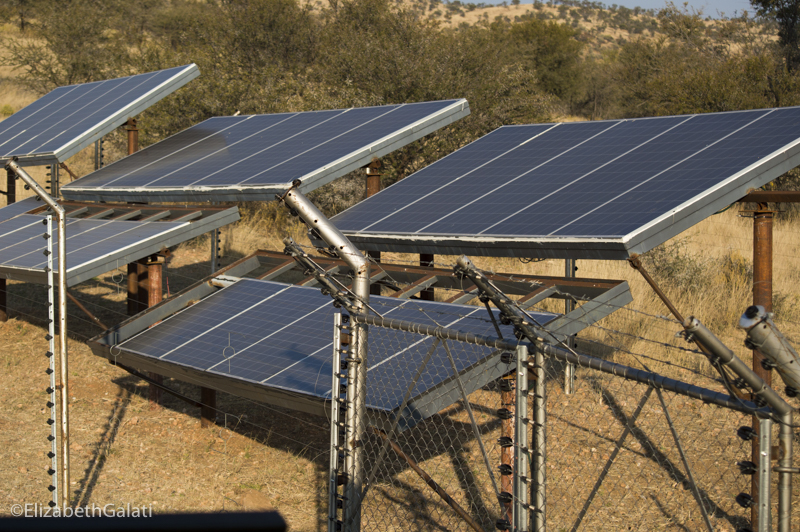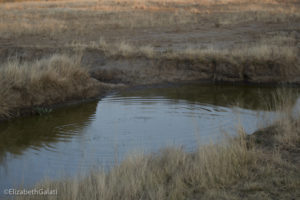Although Namibia is a country enriched with natural resources, the access people have to them is scarce. Some of Namibia’s biggest natural resources are diamonds, copper, and gold. Water is a resource that is very hard to come by in this country. The Namibian economy heavily relies on mining. Mining consists of 11.5% of GDP, but provides for more than 50% of foreign exchange earnings. Although Namibia is rich in mining, they are severely lacking in water.
After a few days being of immersed into the Namibian culture, I have become very aware of a natural resource, water. After only staying at one lodge, I experienced how limited their water sources are. I experienced a freezing cold shower because the electricity dwindled and caused a decrease in the amount of hot water. I was originally not sure what the problem was, but after talking with a lodge employee, he informed me they use solar power to heat the water, not a water heater. I looked into why Namibia needs to use solar power and it turns out they are trying to preserve their fossil fuels.

Solar panels located on Heja Game Lodge property, near Windhoek, Namibia, taken July 12, 2017. These panels are used to heat the water at the lodge.
Since Namibia has minimal water and lots of sun, a process called “solar desalination” is the best option. It is a technique to desalinate water using solar energy. This process involves taking saltwater or any water unfit for human consumption and turning it into fresh drinkable water. This process does not use fossil fuels and doesn’t produce CO2 emissions; it relies on heat or sunshine to raise the water temperature enough for evaporation to begin. This natural process and collection of water provides Namibia with up to 4,000 liters of drinking water per day. Since Namibia consists of mainly desert, its plants and animals have adapted to limited water supplies. However, water is still needed for tourists, locals, and agriculture. Namibia has developed water conservation laws and rules to help households and lodges maintain water supplies.

Forty-foot watering hole located on Heja Game Lodge property taken during a game drive on July 12, 2017. Water is essential for the wildlife to keep hydrated and relax.
Some of Namibia’s water laws include the Water Act No.54 of 1965, Water Resources Management Act 2004, and Water Resources Management Bill. The basis of the Water Act of 1965 was to control use and conservation of water for domestic, agricultural, and industrial purposes. The Water Resources Management act classified water resources as natural assets and provided a modern legal framework for management of water resources, and is based on principals of integrated water resource management. The Water Resources Management Bill recognized the technicalities of implementing the Water Recourses Management Act. This new bill acknowledged the fact that water is scarce and is unevenly distributed. It stated water must be equally distributed between people and environment.
Overall, although Namibia is struggling to preserve their water, they have been a great example for other countries facing water shortage issues. By implanting these laws, Namibia has shown the world they are dedicated to their country; they are a great example for natural resource preservation worldwide.